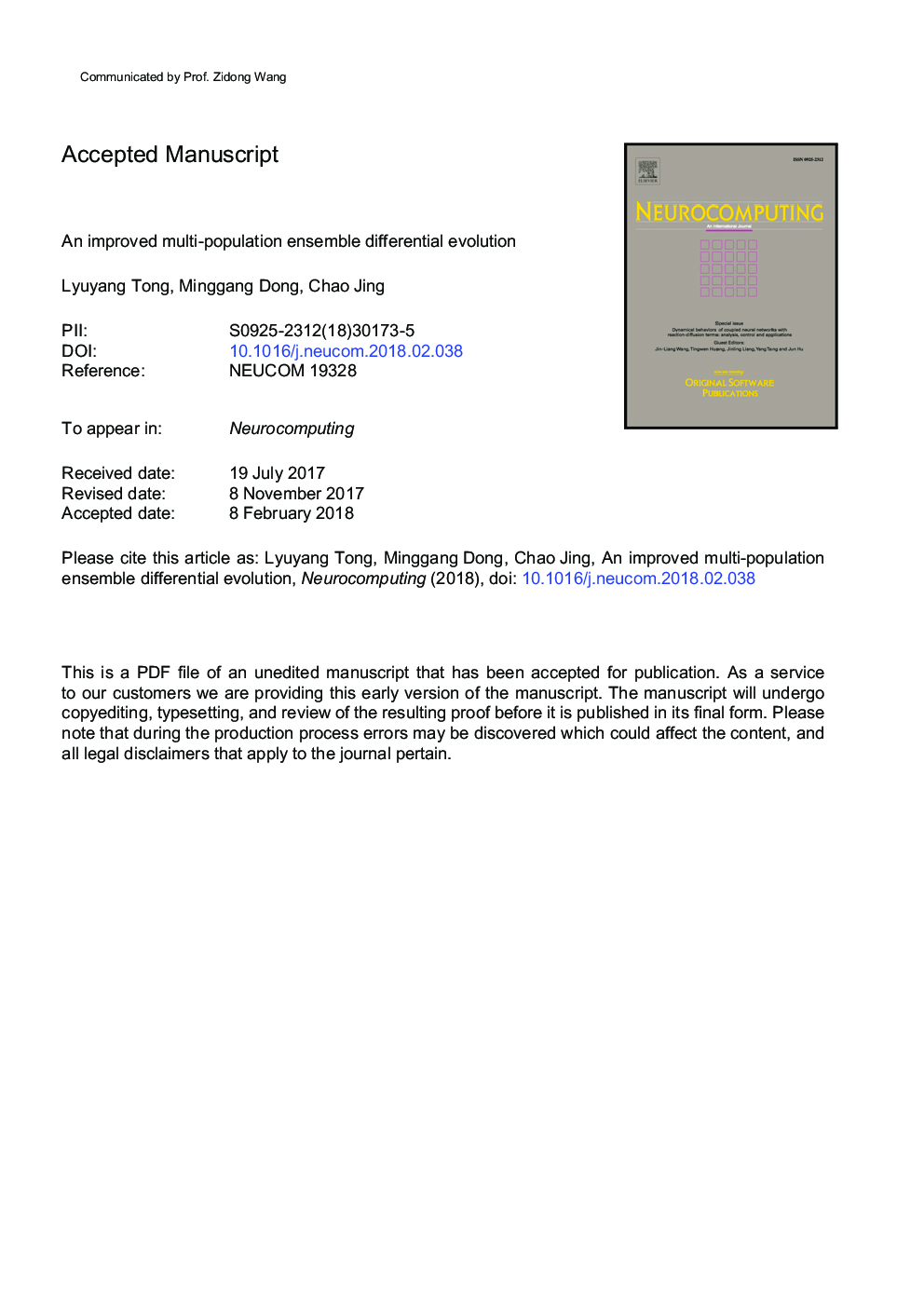| Article ID | Journal | Published Year | Pages | File Type |
|---|---|---|---|---|
| 6864261 | Neurocomputing | 2018 | 46 Pages |
Abstract
Differential evolution (DE) is a population-based stochastic optimization technique that can be applied to solve global optimization problems. The selected mutation strategies and the control parameters can affect the performance of DE. As mutation strategies have significant effects on solving optimization problems, multiple mutation strategies of DE have been developed. Multi-population ensemble DE (MPEDE) realizes an ensemble of multiple strategies, but “DE/rand/1” may be slow at exploitation of the solutions, and the control parameter by applying arithmetic mean in “DE/current-to-pbest/1” may cause premature convergence. Address these issues, an improved multi-population ensemble DE (IMPEDE) is proposed in this paper. IMPEDE proposes a new mutation strategy “DE/pbad-to-pbest/1” instead of the mutation strategy “DE/rand/1” in MPEDE, and the new strategy utilize not only the good solution information(pbest), but also the information of the bad solution (pbad) toward the good solution to balance exploration and exploitation. Furthermore, IMPEDE employs the improved parameter adaptation approach to avoid premature convergence of the “DE/current-to-pbest/1” strategy by adding the weighted Lehmer mean strategy. Experiments have been conducted with CEC2005 and CEC2017 benchmark functions, and the results have demonstrated that IMPEDE outperforms than that of MPEDE and the other four recent proposed DE methods in obtaining the global optimum and accelerating the convergence speed.
Related Topics
Physical Sciences and Engineering
Computer Science
Artificial Intelligence
Authors
Lyuyang Tong, Minggang Dong, Chao Jing,
